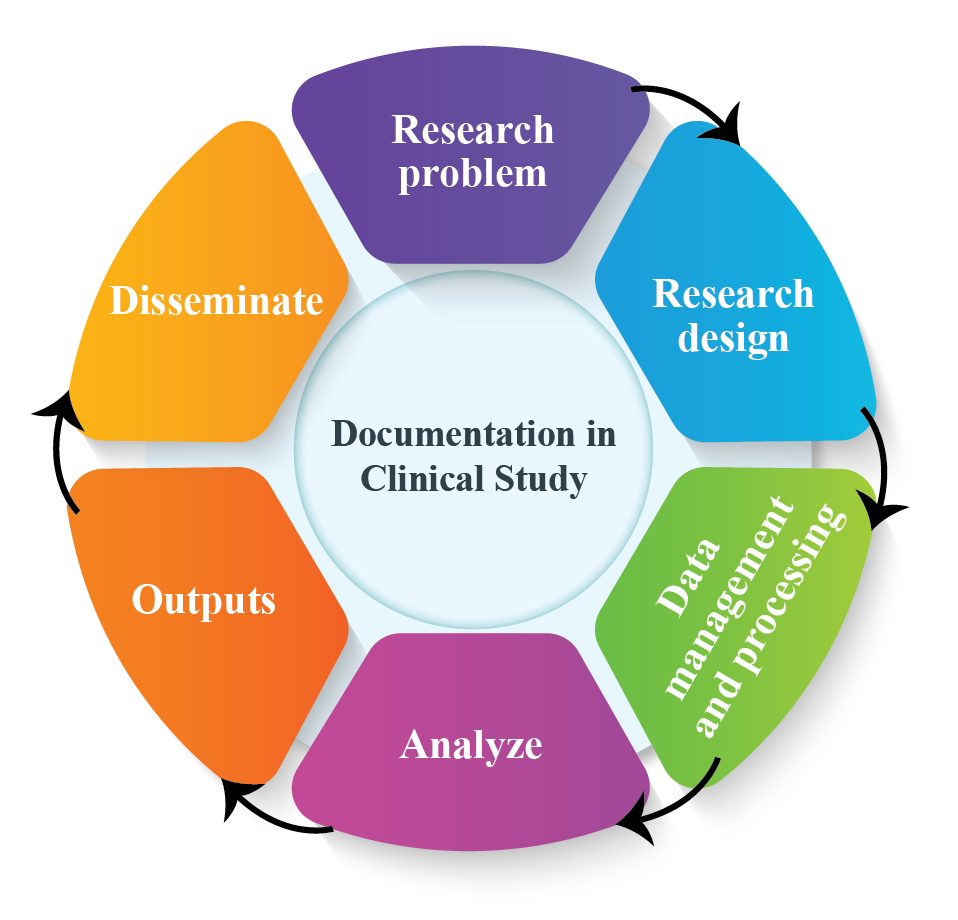Clinical Study or Scientific Research: Importance of Documentation
Clinical Study: Documentation plays a vital role in clinical study or scientific research. It validates how authentic the research data was collected and verify the result of data. Clinical practice documentation is essential for communication among healthcare providers. It is from this documentation that protocol-specific data are abstracted from and transferred to case report forms (CRFs). Documentation is essential to ensure the quality of the activities in clinical research. A trial can be effectively generated only through proper maintenance of documents.
Clinical study or scientific research documentation entails an array of documents which are completed by different people at several stages of the study to reconstruct the trial as it happened. Nevertheless the documentation at the investigator site is the most crucial since study results are based on credible and valid data. Therefore, continuous site trainings are provided to ensure that the investigator and team understand the requirements of good documentation. The principles of good documentation practice recommend to document what was done and what was not done. Documents must be precise and written in a way that ensures both internal document consistency and consistency with other applicable reference documents.
The second commonly observed deficiency during US-FDA inspections was inadequate and inaccurate documentation at the investigator site. Issues related to source documentation were rated fifth out of the 10 findings of European Medicine agency, noted during site inspections in the year 2009.
In a clinical trial the most important purpose of source documentation is to reconstruct the clinical trial as it happened. Source documents provide means to understand and verify how the Medical Writing and clinical trials\study or scientific research were conducted and hold high importance. Source document is the document in which the data is first recorded and later transcribed into the Case report Form (CRF) and finally gets transformed into a clinical study report (CSR). The source document is the one that supports the fundamental principles which are necessary for the protection of subjects’ rights, safety, and well-being. Source document is not only a device to check the eligibility criteria of the patient but also provides complete medical information of the patient right from the time of taking consent till completion of the study. All original documents, data and records (lab reports, patient diaries, hospital records, concern documents, X rays etc) serve as source documents in clinical scientific research.
US FDA was the first to describe the key attributes for correct sourced documentation within ALCOA compliant i.e Attributable, Legible, Contemporaneous, Original and Accurate and it is also adapted by WHO. Subsequently the attributes of good source documentation were redefined by other regulatory authorities and comprised of additional parameters i.e data shall be enduring, available & accessible, complete, consistent, credible and corroborated. In addition to completeness, accessibility and legibility of the source file Drug Controller General India (DCGI) guidance document emphasizes on inspection stresses on filing, storing and readability of source documents
Considering the significance of the source documents, Principal investigator should delegate responsibilities to the staff thoroughly trained in protocol, GCP and understand ALCOA and good documentation practice requirements. Training of site staff should be repeated at defined frequency. There should be commitment from PI for involvement, and supervision throughout entire duration of the study.
Site should develop a SOP for good documentation and must share it with the sponsor/CRO and agreed upon before the start of the trial. Documented procedure at site level should encompass management, maintenance, archival and retrieval of source documentation. Sites should have measures for continuous improvement and maintaining high-quality data.
We at WorkSure® support in planning, performing and communicating research through preparation of various clinical, regulatory and educational documents viz. Protocol, Case Record Form, Investigator brochure, ICF & other trial related document preparation, editing and review of sponsor prepared documents, SOP preparation, developing QA/QC plan, clinical study reports, abstracts and publication writing, poster/PPTs for conferences, Systematic Review/ Meta-analysis for the purpose of Clinical Study or Scientific Research.
